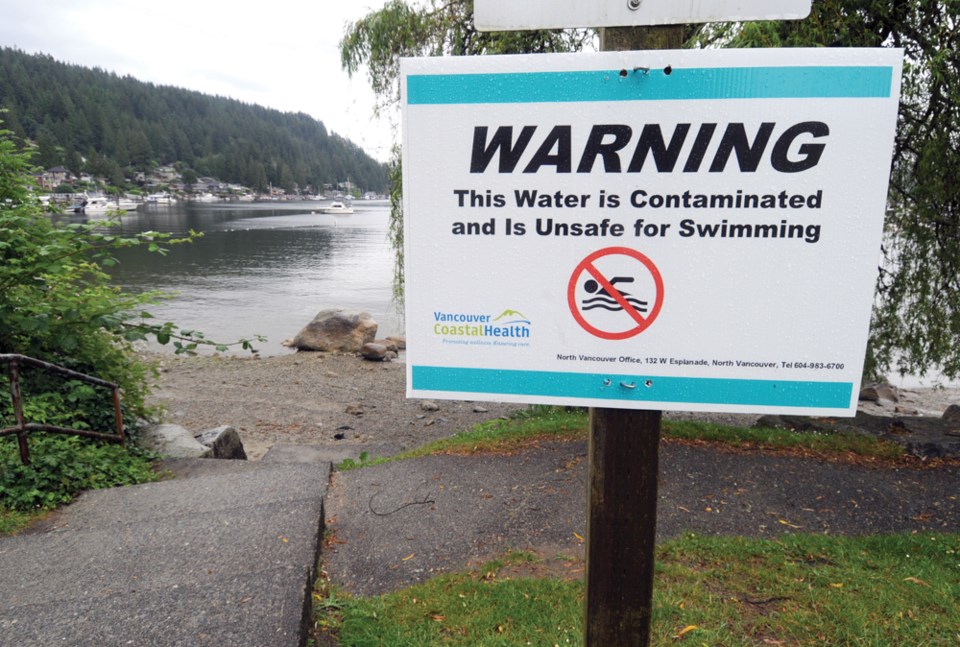Update, July 8, 2022.
It's safe to go swimming at Panorama Park again.
As of July 7, the E. coli beach water quality advisory for Deep Cove has been rescinded by Vancouver Coastal Health. Tests conducted on July 7 found E. coli counts ranging from 10 bacteria per 100 millilitres of water to 135 - well below the 200 threshold set in the federal Canadian Recreational Water Quality Guidelines.
The following story was published on July 4, 2022.
Deep Cove may be one of the most desirable places to lounge by the beach in the summer, but for the time being, swimmers should stay out of the water. Vancouver Coastal Health is reporting potentially dangerous levels of E. coli in the water off Panorama Park.
Under the federal Canadian Recreational Water Quality Guidelines, people should avoid the water whenever the amount of E. coli exceeds 200 bacteria per 100 millilitres of tested water.
Samples taken from five locations in Deep Cove on June 30 showed E. coli counts ranging from 563 to 9,208 – more than 46 times the recommended safe limit.
Getting contaminated water into one’s mouth, eyes, ears or in an open wound results in a higher risk of gastrointestinal and upper respiratory illnesses as well as skin, eye or ear infections, according to the health authority.
E. coli is naturally occurring in the intestinal tract of humans and animals, although there are many ways it can show up in high concentrations in beach water, according to Vancouver Coastal Health.
“Storm water runoff can include contamination from recreational vehicles, animal waste and sewer overflows. Other possible sources are leaking septic tanks and discharge from boats. Heavy rain is often a factor contributing to poor beach water quality. Bacteria levels can be elevated after heavy rainfall, and people are advised to avoid swimming at the beach for at least 48 hours,” a statement on the public health authority’s website reads.
This is the first advisory issued for a North Shore beach so far in 2022.
Vancouver Coastal Health updates its beach water quality results weekly.



